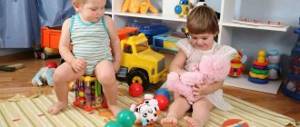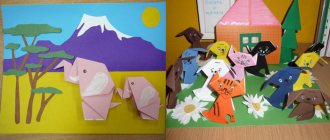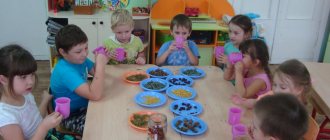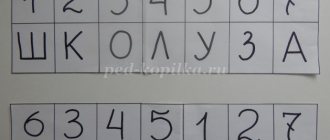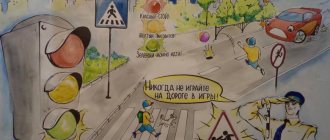The essence of the concept
A parent (family) club is a way of organizing work with parents, aimed at involving the family in active participation in the educational process and strengthening the connection between all participants in educational activities in kindergarten.
The parents' club is an important element in organizing a productive educational process in a preschool educational institution.
Goals and objectives of the parent club
A family club in the system of functioning of a preschool educational institution is a kind of university of pedagogical information with a whole arsenal of goals.
- Providing the necessary psychological, pedagogical and methodological support for the relationship between parents and preschool children. That is, open opportunities for moms and dads to ask questions of interest and receive answers to them, providing assistance in solving educational problems. So, for example, if a child fails to master one or another information block, the teacher not only indicates what needs to be worked on at home, but also how (!) to do it.
- Establishing partnerships between the kindergarten and the family in matters of development, training and education of preschoolers. Parents are not observers, but participants in the educational process, which is reflected in joint activities and holidays.
- Conducting educational work aimed at organizing parent-child dialogue, taking into account all the psychological characteristics and age-related interests of the latter. For example, if a child of the second youngest group (3-4 years old) refuses to learn a poem at home in preparation for a New Year's matinee, then parents do not need to force him. And even more so to threaten or blackmail (“No cars for the New Year if you don’t teach!”). Having identified, with the help of the teacher, the child’s current interests, for example, a passion for construction toys that can be taken apart, as they say, down to the smallest screw, invite the stubborn child to play a game where each screw is tightened only after a line of the poem has been recited. The child will certainly be drawn into such a story.
- Popularization of the work of preschool educational institutions among parents. In recent years, due to the socio-economic situation in the countries of the former USSR, mothers and fathers are busy almost around the clock to ensure the well-being of the family. And in this situation, the kindergarten becomes something like a storage room. The parents' club is intended to explain and clearly demonstrate what and how the kindergarten does, as well as to encourage the family to become assistants who understand the main directions of educational activities and participate (!) in it.
One of the goals of the parent club is to explain to moms and dads the functions of kindergarten and family in raising a child.
Consistent solutions to such tasks as:
- increasing the level of general psychological and pedagogical preparation of the family (through the compilation and elaboration of a list of recommended literature, a selection of videos related to issues of family education and the work of preschool educational institutions);
- identification and transfer of positive experience of family relationships (for example, master classes, where parents whose children have a generally positive image of a preschooler/schoolchild, special educational, sports or other successes, describe their teaching experience, share experiences and describe ways to solve difficult situations, periodically arising in the educational process);
- assistance in the adaptation of children associated with getting used to a new social environment and the requirements imposed by adults (for the younger group this is, of course, getting used to kindergarten, for the older ones it is preparation for starting school);
- assistance in matters of uniting the team of parents, including to prevent the emergence of conflicts (if, for example, two boys of the middle group are constantly sorting things out and fighting, then mothers who are well known from the parents’ club will not shout and quarrel after the children, but will try to figure it out together a reason that may be quite banal - the guys are trying to attract the attention of a pretty girl in this way);
- establishing trust-based, equal relationships between the family and the kindergarten regarding the issues of choosing optimal ways to interact with children (parents do not try to manipulate the teacher by offering home-grown early development school programs taken from the Internet, but trust the educational system in the kindergarten, which has proven its effectiveness for several decades years).
Thematic planning of the family club "Commonwealth"
| № | Topics of the meetings | Form of conduct | Term |
| 1 | Me and my child | Workshop | September |
| 2 | Happiness is when we are all together | Child-parent training | November |
| 3 | Play together | Joint activity between parents and children | January |
| 4 | We are together | Child-parent training | March |
| 5 | Learning to Express Anger | Joint activity between parents and children | May |
A set of materials on how a psychologist works with parents
The kit includes the family club "COMMONWEALTH" with notes of events + visual information for parents
How does the parent club work?
The work of the club is determined by the strategy of the educational process in a particular preschool educational institution. Club membership exists in two formats: general for the entire garden and private for a separate group. Typically, members of the entire kindergarten club gather for meetings (club hours) once a quarter in the music room to work on issues that are not tied to the age of the children. For example, discussing the problem “Child and Computer”. The parent club of a particular group does not meet separately, but operates within the framework of parent meetings, at which issues that concern mothers and fathers of children of a certain age are raised.
Family club in the group works at parent meetings
Parent club members
In addition to the teacher, 3-4 parents from each group (or all mothers and fathers who have expressed a desire to join the club), narrow specialists take part in the work, helping in solving specific problems:
- a teacher-defectologist (if there are children in the group with certain disabilities in physical or mental development who require special attention);
- teacher-speech therapist (his participation is very important for the second junior and middle groups, when children, according to age standards, have already formed the entire range of sounds, which means it is possible to identify speech disorders that need timely correction work in classes in kindergarten and at home);
- psychologist (a specialist who examines and analyzes potential or real conflicts and helps find the optimal solution for them);
- primary school teachers (to work with parents of senior and preparatory groups);
- methodologist, head of a kindergarten (usually in the role of moderators of the meeting).
What do they do at meetings?
Parent club members:
- listen to consultations with narrow specialists;
- ask teachers questions of interest;
- discuss recommendations regarding the organization of educational work at home;
- master practical knowledge and skills (for example, parents of the first and second junior groups learn to correctly select and conduct articulatory gymnastics with children who have just begun to speak).
Parents also take part in preparing attributes for children’s theatrical activities.
Forms of work of the family club
The parent club can work in several ways depending on the number of participants and the specific objectives of the meeting. The most universal forms are considered:
- round table meetings dedicated to current issues of interaction between participants in the educational process;
- a reading club, where parents read and discuss psychological and pedagogical literature;
- psychological and pedagogical consultations with specialists;
- master classes (both teachers and parents themselves);
- trainings (usually on psychological topics, for example, “Recommendations for interacting with a hyperactive child”);
- workshops (mastering specific methodological techniques, for example, finger games in the first junior group);
- solving pedagogical situations (for example, discussing the reasons why 2-3 kids in a group are constantly fighting, as well as ways to resolve this conflict);
- exchange of experience (first-hand reports on success in solving any psychological and pedagogical problem);
- holding joint holidays (sports, matinees, entertainment).
As part of the work of the parent club, sporting events are held
Club program
The topics of work of the general parents' club are planned by the methodological council of the preschool educational institution. However, it can be changed at the request of the parents. To do this, each group has a “Magic Mailbox” in which moms and dads can leave requests for questions of interest. 1-2 weeks before the next meeting, the kindergarten methodologist collects these requests, analyzes them and adjusts the topic depending on the issues of concern. Within the group, the choice of topic for discussion most often occurs at the discretion of the teacher, but always taking into account the personal requests of the parents.
Topics of parent club meetings
In my practice, at the August pedagogical council, the kindergarten methodological council proposed about 10 topics for the parent club. Teachers approve this list, and then during the year, each time before a meeting, members of the methodological council select the most relevant topic, clarify it and adjust it in accordance with the requests of the family and/or teachers.
An approximate list of topics could be:
- “How to prepare your child for school”;
- “How to teach a child perseverance and attentiveness”;
- “Developing memory in preschoolers”;
- “Intellectual games for the development of thinking in children”;
- “Non-traditional methods for developing fine motor skills in children”;
- “Recommendations for training and raising a hyperactive child”;
- "Age crises";
- "Childhood fears";
- “Whims and stubbornness”;
- “Child and computer”;
- “Speech disorders and the causes of their occurrence”;
- “Formation of vocabulary in children through speech games.”
Each topic involves not only theoretical, but also practical activities of parents
Planning a club hour
The meeting with parents lasts 1–1.5 hours. The topic is developed in four stages.
Greetings
The stage of preparation for work, which is carried out, as a rule, in the form of a game that unites the team and sets the desired atmosphere. In a group, such games usually become a ritual. The greeting lasts about 10 minutes.
Table: game options for greeting
| Name | The essence |
| "Wishes" | Each group member in a circle says a phrase dedicated to everyone else: “Good afternoon,” “I wish everyone to learn a lot of new things,” etc. Instead of a phrase, the participant can use any greeting gesture. |
| "Dance Hello" | To the accompaniment of calm music, participants move freely around the audience. At the presenter’s signal (the sound of a bell), everyone says something pleasant to the participant who happens to be next to him: “I’m so glad to see you!” or “What a wonderful day today!” etc. |
| "Compliment" | Participants in a circle take each other’s hands and say compliments, etc. |
A playful form of greeting gives a positive attitude to work
Main stage
At this stage, the theme of the club hour is being developed in two directions.
Theoretical aspect
Introduces himself as the host of the club hour, that is, a teacher, a specialized specialist or a parent, if this is due to the topic. To present theoretical material, the following techniques are used:
- mini-lecture (to introduce new information);
- parable (as a stimulus for further discussion, a kind of epigraph for the meeting);
- demonstration of videos (in order to emphasize the importance of the issue).
About 15 minutes are allocated for theory.
Practical part
The practical part involves the active participation of all club members. The most productive techniques for this are:
- discussion (the most convenient transition from theory to practice, allowing you to include as many meeting participants as possible in the work);
- psychological exercises, games to get acquainted with specific ways of interacting with children (conducted both among themselves and with the involvement of children);
- child-parent workshops (forms of work that involve children in productive activities, for example, performing joint drawings for subsequent psychological diagnostics).
Joint productive activity unites the team of parents and children
This is interesting. Usually, in order to maintain the interest of the audience, theory and practice are not separated, but interspersed with each other.
Practice takes up to 45 minutes.
Emotional relief
A stage of relaxation that promotes switching from exciting, possibly traumatic experiences to a harmonious state. For relaxation, music and simple breathing exercises (for example, inhaling and exhaling with eyes closed) are usually used. 5 minutes is enough for relaxation.
The final stage
Based on personal practical experience, I can say that feedback is very important, as it allows you to evaluate the effectiveness of the family club. Reflection or self-assessment can be carried out in two forms:
- written (participants formulate answers to the questions “How is this meeting useful?”, “What would you like to discuss at the next meeting?”);
- oral (for example, passing a ball to each other, participants talk about their impressions of work, or describe themselves in a hypothetical situation similar to the one discussed at the club hour).
The final stage lasts about 15 minutes.
Reflection can be in the form of figures cut out of colored paper, where each shade represents a certain emotion.
Table: example of a summary of a club hour “Adaptation of a child in kindergarten” (fragments)
Author: Malashkina E.S., educational psychologist, Russia.
| Stage | Content |
| Greetings | The presenter invites the participants to get to know each other in the game “Business Cards”. Each of those present is invited to identify themselves and briefly tell about their child attending kindergarten...> |
| Basic | <...Adaptation is adaptation to environmental conditions. Psychological adaptation assumes that a person is in harmony with himself, communication partners and the world around him as a whole. What psychophysical reactions do you think may be characteristic of a child during the adaptation period? There is a discussion, at the end of which the presenter offers a poster with this information...> <...Exercise “Situation” The presenter reads out the situation and offers to answer questions. Today Shurik turned three years old, and his mother took him to kindergarten for the first time, warning him that she would very soon take him away from the group. At first, Shurik liked it in kindergarten. He had never seen so many new wind-up toys and an endless number of cars. Forgetting about his mother, Shurik rushed to the toys, but the teacher called everyone for a walk, and Shurik had to go with the children. But he could not, like other children, dress himself, lace his shoes, tie a scarf. Mom wasn't here, and Shurik asked the teacher to help him a little. All the children started laughing that he was so stupid, and after that no one wanted to play with him in the yard. And Shurik remembered his mother again, he remembered what she said, and ran to the gate, expecting that she would come for him any moment. But mom was not there. And instead, a teacher appeared and began to scold him for leaving the group without permission. She forced him to return to his children. He became stubborn and did not want to go. Then he burst into tears and began calling loudly for his mother. Shurik refused dinner and did not want to go to bed. He sat down by the door and, wailing, began calling his mother again. But mom came for him very late, after dinner. And, having found out the details of today from the teacher, she became terribly angry and attacked Shurik in front of everyone, cursing that he was behaving so badly. She promised that she would put him in a corner and took him home crying, not understanding why he burst into tears. And he cried more and more. Questions: Did Shurik’s mother do the right thing when she left him in kindergarten for the first time for the whole day? Did she behave correctly when she came for him to take him home? What would you do in her place? Games “On the way to kindergarten” To make your child want to go to kindergarten, you can play with him:
|
| Relaxation | Exercise “My Mood” Participants are asked to draw on a piece of paper something that corresponds to their current mood. Analysis of the exercise: What was depicted and why? Has the mood changed compared to what it was at the beginning of the meeting? Which way? What caused the change?..> |
| The final stage | <…The presenter invites the meeting participants to talk about their impressions, thoughts, feelings, wishes. |
Video: from the experience of a meeting of one parent club
For successful educational activities of preschool educational institutions, close interaction of all participants in the educational process is necessary. The work of the family club as a whole is essential for establishing cooperative relationships between the teaching staff of the kindergarten, the family and the children. In particular, club meetings allow us to discuss and analyze pressing issues related to creating optimal conditions for the full intellectual, emotional, spiritual, moral and physical development of preschool children.
Organization of the “Children-Parents Club” in a preschool educational institution material (preparatory group) on the topic
Organization of a “Children and Parents Club” in a preschool educational institution
The success of a teacher in a preschool educational institution is determined not only by methodological literacy in interaction with children, but also by the ability to properly organize cooperation with parents. Family and preschool organization are two important institutions for the socialization of children. Their educational functions are different, but their interaction is necessary for the comprehensive development of the child.
The Federal State Educational Standard for Preschool Education defines modern guidelines for building relationships between a preschool educational organization and the families of students. Among the basic principles of preschool education, the Federal State Educational Standard for Education highlights cooperation between the preschool organization and the family. The most important tasks solved by the Federal State Educational Standard for Education include providing psychological and pedagogical support for the family and increasing the competence of parents in matters of development and education, protecting and promoting the health of children.
The main goal of all forms and types of interaction between preschool educational institutions and families is to establish trusting relationships between children, parents and teachers, to foster the need to share their problems with each other and solve them together. One of the unconventional methods of establishing contact with the families of pupils is the creation of a parent-child club in a kindergarten. The organization of interaction between a preschool educational institution and a family in the form of a parent-child club is an interesting modern model of working to attract parents to active participation in the educational process and helps to strengthen ties between the preschool institution and the families of pupils.
The members of the club are students, parents, kindergarten staff, and representatives of various public organizations.
In organizing the work of the club, various forms of work are used: group events for parents: master classes, workshops, exchange of experience, consultations, business games, lectures, joint parent-child activities, leisure activities, holidays, sporting events, competitions. Joint physical education activities help to harmonize the relationship between parents and children, bring them closer, allow them to feel the joy of joint physical activity and establish emotional and tactile contact. Based on individual and group requests from parents, specialized specialists are invited. In the group, you can organize a “Parent Mail”, in which moms and dads can leave requests on issues of interest.
General structure of the lesson.
Greetings. It serves to create positive interest and unite the group.
Warm up. This type of activity relieves emotional tension, creates a favorable psychological climate, and develops a sense of internal stability and trust.
Main part. This part addresses the goals and objectives of the meeting. It includes a set of psychological exercises and techniques, productive activities.
Lesson reflection. Evaluation of the event by adults from the standpoint of interest, productivity, usefulness, and justification of expectations. Children share their emotions (how they feel “here and now”).
Parting. It is necessary to create a sense of integrity and completeness of the lesson, and emotional unity of the group.
The club program includes approximately 9 events per year (one meeting per month). The group is formed on a free basis (at the request of the parents). Each meeting for parents lasts 40-60 minutes.
The work of the club is organized in three stages.
Preparatory: determining the needs of parents through interviews and questionnaires. Differentiation of identified problem situations according to the age of the children.
Organizational: drawing up a long-term plan for the club, approving the schedule of classes. This stage is equipped with methodological support: lesson notes are compiled and material is selected.
Direct work of the “Children and Parents Club”.
For successful educational activities of preschool educational institutions, close interaction of all participants in the educational process is necessary. The work of the family club as a whole is essential for establishing cooperative relationships between the teaching staff of the kindergarten, the family and the children. In particular, club meetings allow us to discuss and analyze pressing issues related to creating optimal conditions for the full intellectual, emotional, spiritual, moral and physical development of preschool children.
